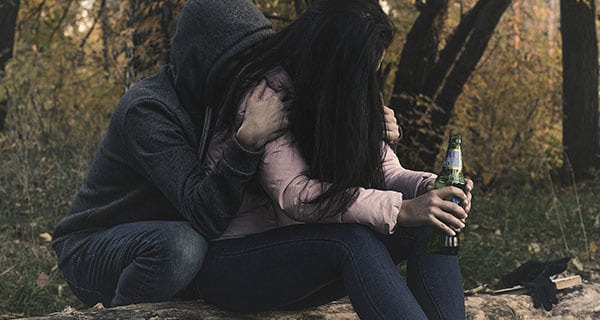 Ever since Wilbur and Orville Wright proved that heavier-than-air machines could fly, safety has been a priority when it comes to air travel.
Ever since Wilbur and Orville Wright proved that heavier-than-air machines could fly, safety has been a priority when it comes to air travel.
Engines and chassis are inspected and re-inspected. If some gizmo in your car engine breaks, your car stops and you look under the hood. You don’t have that luxury in an airplane. If the engine fails, you fall out of the sky.
In-flight, pilots and crew must have calm and quiet in order to do their jobs. The passengers are entitled to the same.
That’s why rules about alcohol consumption and intoxicated passengers are so strict on airplanes. If a flight attendant believes a person about to board a plane is intoxicated, they are required to prevent that person from boarding. After the airplane has left the ground, the attendants are very careful to ensure that a passenger doesn’t consume too much alcohol.
The extreme importance of ensuring that intoxicated people don’t endanger the lives of others on a flight makes a recent incident in Quebec so hard to understand.
A Quebec cabinet minister said there might be a problem of intoxicated people boarding airplanes in northern Quebec. The air ambulances transport people needing medical attention from Indigenous communities to centres in the south. Parents of sick children were to be allowed to accompany their children on the flights. The minister appeared to have information that some of the adults accompanying children might have drinking problems. He vowed that intoxicated people would not be allowed on the flights.
So far, there’s nothing unusual in any of this. If the minister had information to suggest there was a real possibility that intoxicated people might board airplanes, no one would even suggest he was acting improperly. In fact, he would be derelict in his duties if he did nothing to stop intoxicated people from boarding those flights.
And one would also expect that local Indigenous leaders would support the minister’s efforts. After all, the lives of Indigenous passengers could be put in jeopardy by the unpredictable and often violent behaviour that’s a natural byproduct of intoxication. That’s a volatile mix with medically-compromised passengers.
But Indigenous leaders expressed no concern for the safety of their constituents. The fact that intoxicated people might be a problem on airplanes carrying people in need of medical attention didn’t even get a mention. Instead, they unanimously accused the minister of being racist. They demanded the minister’s resignation.
Then instead of doing what he should have done – to let it be known, in no uncertain terms, that knee-jerk accusations wouldn’t stop him from standing up for basic air safety principles – the minister immediately apologized. Apparently, he was so afraid of the racist label that he was prepared to ignore the problem he initially said was very real.
So confident were the Indigenous leaders of the power of the racist label they wield like a sword that they were quite prepared to ignore safety concerns related to their own people to make political points.
Nobody wants to be accused of using negative stereotypes. As Indigenous author Harold Johnson says in his book Firewater, the white man who risks using the words Indian and alcohol in the same sentence is sure to be labelled a racist.
And yet to ignore a safety issue involving alcohol in a northern area, where heavy drinking plagues so many Indigenous communities, is equally wrong. On many First Nations communities, alcohol has virtually become a way of life. It’s the main reason so many Indigenous people are in jails and so many Indigenous children have to be apprehended from their alcoholic homes.
It’s a very real problem. If there is any possibility that alcohol consumption could jeopardize the lives of medically-compromised patients, it needs to be discussed.
This minister may not have chosen his words well, but he wasn’t wrong to raise the issue.
Indigenous leaders were wrong to immediately shut down discussion by using the racist card. That won’t solve the problem.
Later, the minister’s statement was branded contrary to the spirit of reconciliation.
The same can be said about the Indigenous leaders’ knee-jerk reaction.
Brian Giesbrecht is a retired judge and senior fellow with Frontier Centre for Public Policy.
The views, opinions and positions expressed by columnists and contributors are the author’s alone. They do not inherently or expressly reflect the views, opinions and/or positions of our publication.

